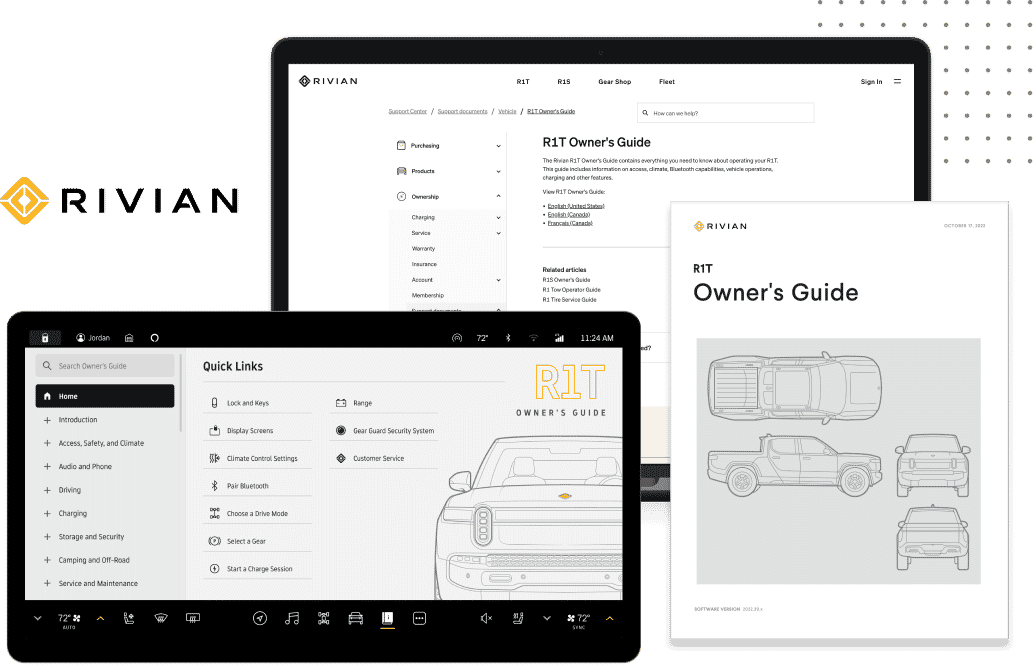In The Press
MadCap Lingo 3.0 Features Project Packager to Bridge the Gap Between Authors and Translators
Industry’s Most Integrated Translation Memory and Authoring Tool Solution Takes the Guesswork Out of Translation Projects and Facilitates Reuse of Translated Terms
La Jolla, CA, USA – September 9, 2009 – MadCap Software, the leader in multi-channel content authoring and a showcase company for Microsoft (NASDAQ: MSFT) Visual Studio 2005 and Microsoft XPS, today announced that MadCap Lingo 3.0 is now available. MadCap Lingo, the XML-based, fully integrated translation memory system (TMS) and authoring tool solution, eliminates the need for file transfers in order to complete translation—preserving valuable content and formatting to deliver a consistent experience across multiple languages.
With version 3.0, MadCap Lingo adds a new Project Packager function that bridges the gap between authors and translators who use other TMS software. Using the Project Packager in MadCap Lingo, authors can work with translators to streamline the translation process, track the status of completion, and obtain more accurate project cost estimates. MadCap Lingo 3.0 also features a new TermBase Editor for creating databases of reusable translated terms, and enhanced translation memory. Through direct, seamless integration between MadCap Lingo and MadCap’s industry-leading authoring and multimedia applications (Flare, Blaze, X-Edit, Capture and Mimic), MadCap offers the most powerful integrated authoring and localization workflow available.
Project Packager Facilitates Author/Translator Collaboration
Project Packager in MadCap Lingo 3.0 is designed specifically to make it easier for authors who need their documentation translated into another language but work with a translator who relies on a TMS tool other than MadCap Lingo. Using Project Packager, the author can create a MadCap Lingo project with all the files that require translation, and in a single click, bundle it in a ZIP file and send it to the translator.
MadCap Lingo displays a list of all files that need to be translated, going beyond text to include skins, glossaries, search filter sets, and much more. As a result, the author can ensure that the translator receives all of the files requiring translation. This benefits both the author and translator by eliminating time delays created by the need to add “forgotten files” for translation. It also enables more accurate translation project estimates, helping translators to avoid accidentally underestimating project costs based on an incomplete file count—and protecting authors from unexpected cost overruns.
Once the translation is complete, the translator sends a ZIP file with the content. The author then simply merges the translated file in MadCap Lingo, which is used to confirm the completeness of the translation. The author can then run statistical reports showing detailed information for each project and file to determine what has/has not been translated, how many words/segments have been translated and/or still need to be translated, and much more. The author can then export the MadCap Lingo project to a range of outputs, such as a Flare project file for online and print publishing, Word document, or even a Darwin Information Typing Architecture (DITA) file, among others.
“The more sophisticated the documentation, whether it is designed for print or online, the more difficult it is to manually identify and track all the files needed for translation. This has been one of the persistent weaknesses of traditional authoring and translation workflows,” said Anthony Olivier, MadCap co-founder and CEO. “MadCap Lingo, with its tight integration to the other MadCap authoring tools, was the first software to overcome this challenge for authors through automated tracking of the files requiring translation. Now with the Project Packager in MadCap Lingo 3.0, authors can for the first time easily extend this benefit to all translators regardless of the TMS solution being used.”
TermBase Editor for Enhanced Translation Experience
MadCap Lingo 3.0 also has several new features that enhance the experience of translators who are using it to complete their translations.
The new TermBase Editor enables translators to create and manage concept-oriented, multilingual terminology databases, “termbases,” making it significantly easier to reuse translated terms. This system automatically displays previously translated words from the termbase during the translation process, improving the reliability of translations. Unlike a translation dictionary, terms can consist of multiple words, and translators can update and modify the termbase at any time. Additionally, translators can maintain multiple termbases for different customers.
The TermBase Editor also allows the import and export of Term Base eXchange (TBX) files. TBX is an open, XML-based standard used for exchanging structured terminological data. TBX files offer a clear advantage in that they can handle multiple languages versus TMX files, which can only handle two languages. TBX has been approved as an international standard by both the Localization Industry Standards Association (LISA) and the International Organization for Standardization (ISO).
Other new capabilities in MadCap Lingo 3.0 include:
- Translation Memory – Apply Suggestions to Project function, which makes it possible to view and automatically apply translation memory suggestions to an entire project, rather than just one segment, saving hours of effort. Only suggestions with a 100-percent match to the source segments are automatically applied to ensure the integrity of the translation.
- Dynamic Help Window Pane Lock lets the translator keep the current Help topic frozen in place while moving around in the MadCap Lingo interface, making it easier to follow steps or other information placed in the Help topic.
- Minimize to System Tray provides an option to place a shortcut button in the system tray (e.g., notification area) of the task bar when MadCap Lingo is minimized.
- Multiple File Support allows multiple files to be selected when creating a new MadCap Lingo project, for example HTM, HTML, XML, DITA or DOC files.
- TXT File Support enables translators to import basic text files in addition to the range of file types already supported by MadCap Lingo.
Availability and Pricing
MadCap Lingo 3.0 is available today. Perpetual licenses are priced at $599 for a single license, $1,995 for five licenses, and $2,990 for ten licenses. Subscription licenses for MadCap Lingo are available at $149 for three months, $299 for six months, and $449 for twelve months. MadCap’s solutions are backed by a range of service and support options, delivered by MadCap’s US-based team of authoring and technical documentation experts. Support fees are $199 per year for the Bronze Level, $299 for the Gold Level, and $499 for the Platinum Level. Discounts for multiyear support contracts are also available.
About MadCap Software
MadCap Software is a trusted resource for thousands of companies around the globe for single-source, multi-channel authoring and publishing solutions designed to streamline the process of developing and delivering training content, learning and development programs, technical documentation, online Help, knowledge bases, and more. From authoring, publishing and translation, to cloud-based content management system, to contribution and review in the cloud, you can streamline content delivery and manage the entire content development lifecycle with MadCap Software. MadCap Software’s services include product training, consulting services, translation and localization, and an advanced developer certification program. Headquartered in Denver, Colorado, MadCap Software is home to some of the most experienced software architects and product experts in the content development industry.




